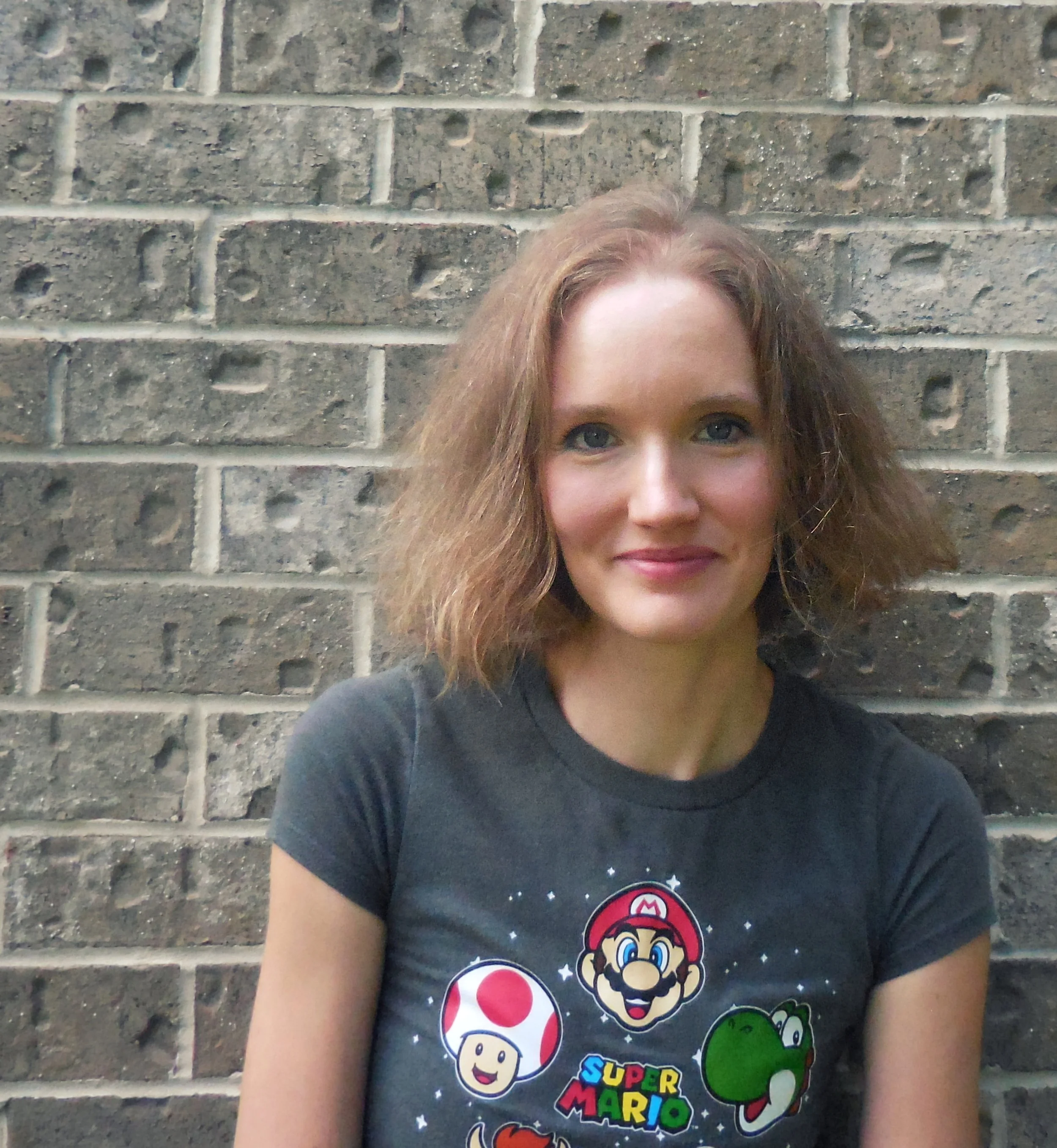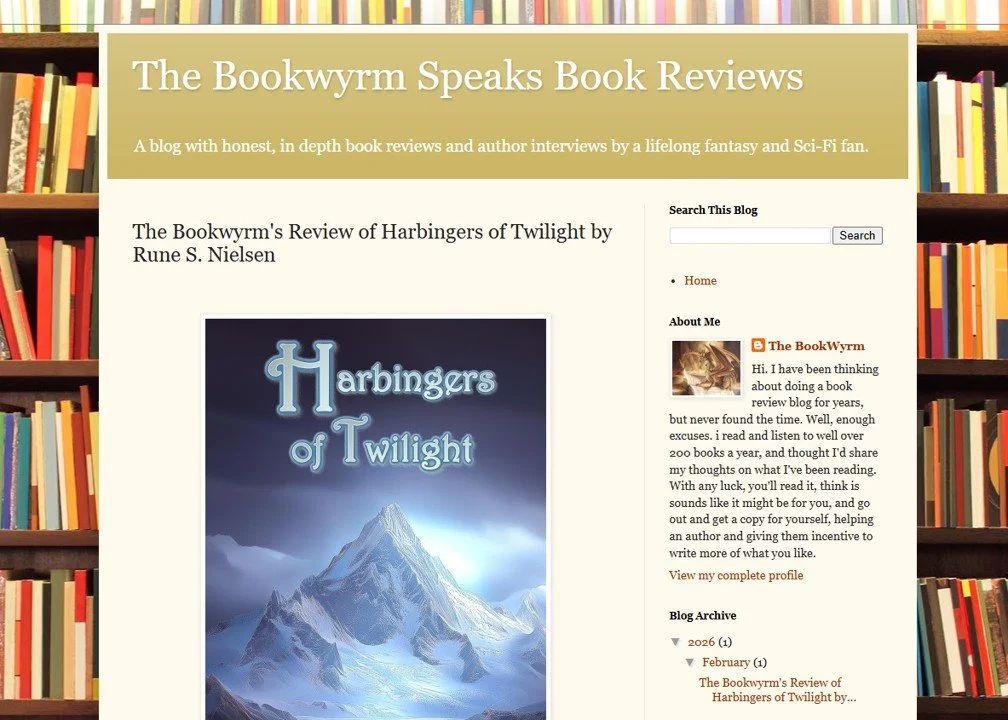I was lucky to get an interview with Quenby Olson, the author of Miss Percy’s Pocket Guide to the Care and Feeding of British Dragons, and one of this year’s #SPFBO8 semifinalists.
Please, tell us a bit about yourself…
I’d love to have some incredibly interesting backstory with which to entertain people, but it’s fairly mundane. I was born in rural Central Pennsylvania, I grew up in rural Central Pennsylvania, and — shocking development! — I still live in rural Central Pennsylvania. I was a homeschooled nerd. I trained to be a classical ballet dancer, but I have trick knees and am also very tall (ballet dancers are not typically Very Tall). I like to eat chicken and bake things and I have not had a good night’s sleep in years. Also, I think Ghostbusters II is a good movie and no one can tell me different.
“(Rune) What’s the best thing about being a writer?
(Quenby) It’s free therapy.
(Rune) What’s the hardest thing about being a writer?
(Quenby) It’s terrible therapy.”
What was the first thought that popped into your mind when you found out you had made it to the semifinals?
Well, I was coming off a ridiculously bad headache and also the plumbing in our row of townhouses had gone haywire, so it was like a little sliver of sunshine in the middle of a (I think this is where one can say “literally”) crappy morning.
Why did you decide to take part in the SPFBO?
I had entered SPFBO3 on a whim, managed to nab a solid review for my book, and was then cut in the first round. However, some of the other authors and bloggers that I met through the competition (and in the years since) have become great friends and I’m going to sound incredibly cliche when I state that it really, truly is about the people you meet and not about winning or losing at all. (Honest!)
Why should we buy your SPFBO8 book?
Short answer? Because children are expensive and mine keep demanding such costly luxuries as food and new shoes and braces. Long answer? Because I would like to see more stories that aren’t about the teenager and the Chosen One and the main character who has all the traits of a Main Character carrying us through the story. I want to see someone like me, a middle-aged woman who has an achy lower back and loves cake and maybe worries that life has slipped through her fingers… Well, I want to see that character have a chance at an adventure, too.
What got you into writing? And how long have you been doing it?
I was always making up stories when I was a kid, with my Barbies and when I was playing outside, creating fantasy worlds in my backyard. I didn’t really start writing into my 20s, which I know is late compared to some, but that was the age that suited me best. What really pushed me into it seriously? I want to say it was a love of telling stories or some other such pretty things, but honestly, it was spite. I read a book others raved about, I didn’t like it, and thought, “Well, I can do something better than that!” And then I discovered that I adored telling stories along the way.
Why did you choose to write fantasy? And why pick this particular fantasy subgenre?
I am a child of the ‘80s, so I was raised on The Princess Bride, Willow, Ladyhawke, The Neverending Story, The Dark Crystal, Labyrinth, etc. So I think fantasy just called to me, in a way. As to why I gravitated towards cozy fantasy? Because I needed to write something that felt like a deep breath and a cup of tea in the middle of everything currently going on around me in the world.
Which other author has had the biggest influence on your writing?
Elizabeth Gaskell, who had such sharp wit in her writing, and she’s often lost in the shadow of more famous authors like Jane Austen. Not that I don’t like Jane Austen (Persuasion is beautiful perfection) but I feel like, at least for me, there was an edge to Gaskell’s work that is often overlooked. Also, Jane Eyre, which was probably my first foray into the classics. And The Blue Castle, by LM Montgomery, which is a very underrated gem.
What’s the best thing about being a writer?
It’s free therapy.
What’s the hardest thing about being a writer?
It’s terrible therapy.
How do I get into the semifinals? Do you perhaps have a tip, scrap of wisdom, or perhaps an author app, tool, or resource that you recommend we try?
There’s a line from the show King of the Hill, where one of the characters - who cuts hair for a living - reminds another hairdresser that a botched haircut will grow back. “It WILL grow back.” And I think about that with writing. If I screw up this scene, the words are still there for me to fix, the ideas and the creativity will come back to me. It will grow back. I can fix this.
Good advice! What new projects are you working on?
Right now, trying to shape up the last volume of Miss Percy’s adventures without tearing out all of my hair. (I am NEVER writing another trilogy.) After that, it’s shifting over to vampires and other creatures, with The Womanly Art of Monster Hunting, which is… eh, basically Wives and Daughters but with vampires. So a touch of humorous commentary on the human condition, and also a slosh or two of gore. Plus a cat!
Anything else you would like to say before we close?
So many authors will tell you that being a writer… well, it’s a terrible career to choose. It doesn’t pay well for most people. It feels like screaming into the void most of the time and hoping one single person might hear your voice. So I make sure to write what makes me happy, what fulfills me. Because my next book might not sell more than a half dozen copies, and I at least want to know I had a good time fighting with my characters and trying (and failing) to tell them what to do. And I want to be proud of what I write, no matter what. So I hope that other authors can do that, write what they want, and find the joy in it, because you absolutely cannot predict what will happen to it once you cross your final “t” and dot the last “i”.
I wish you the best of luck with sales, in the competition, Quen, and with writing about vampires! And I hope you’ll be spared any of the terrible “therapy” from now on :-)
Thanks for doing the interview.




